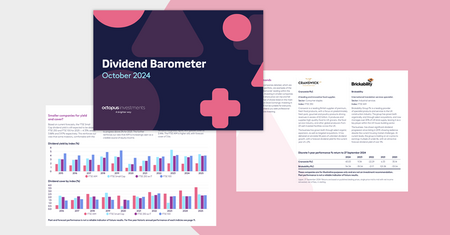Though much has changed in the world since 2009, the threshold for inheritance tax (IHT) has remained frozen in time since then. 1
The amount your clients can leave to their loved ones – free from IHT – has stayed at £325,000 and hasn’t moved in line with inflation.
The residence nil rate band (RNRB), an additional allowance that applies to the family home has also remained frozen at £175,000.
Amid rising inflation, this means the number of estates paying IHT is growing. In fact, as house prices and asset values have increased, it’s estimated that IHT will raise £7.8 billion for HMRC2 this year. This breaks all previous records and it’s forecast to continue growing.
So, with more of your clients set to leave behind more valuable estates – and more tax for their beneficiaries to pay – now is the perfect time to talk about estate planning. And Business Relief-qualifying investments should be part of that conversation.
As a quick reminder, Business Relief (previously called Business Property Relief or BPR) is an established relief from inheritance tax available for shares in qualifying trading companies. It’s different from the planning clients are likely to be most familiar with, like gifting and using trusts, and it’s an option that shouldn’t be ignored for clients.
Here are five good reasons why it’s time to consider Business Relief (BR) :
Reason 1. Speed, access and control
When your client buys shares in a company that qualifies for BR, they can be passed on to their loved ones – free from IHT – upon death. This is as long as your client has held (and still holds) the shares for two years at their time of passing.
In comparison to gifting, which takes seven years to become completely free from IHT, BR is much faster. It also offers your client more control of their investment. After all, a gift is irreversible, whereas a BR-qualifying investment stays in your client’s name during their lifetime.
This means they can access and sell down their shares at any time they need, subject to liquidity. And this can be very reassuring during the current cost-of-living crisis, where clients may need to access their investment for example to fund care home fees.
Something to keep in mind: please remember that the value of a BR-qualifying investment, and any income from it, can fall as well as rise. Investors may not get back the full amount they invest.
Reason 2. Different solutions for different clients
BR isn’t just for one type of client with one objective.
Your client might be looking for high growth. These clients often find AIM-listed BR portfolios attractive because of the growth potential and the ability to also hold AIM shares in an ISA if they want to leave their ISA free from IHT.
Or, very commonly, and especially during this time of uncertainty, your client might want to target predictable growth while retaining access to their assets.
In this situation, BR-qualifying investments in unquoted companies might be appealing – with their ability to target steady and predictable levels of return.
Regardless of your client’s needs and objectives when it comes to BR, there are different solutions to explore which is helpful particularly in the current environment.
Something to keep in mind: the shares of unquoted and AIM-listed companies could fall or rise in value more than shares listed on the main market of the London Stock Exchange. They may also be harder to sell.
Reason 3. The ongoing great wealth transfer
It’s predicted that £1 trillion of assets will pass down this decade. And £5.5 trillion is set to be passed down between 2022 and 2050. 3
This means an unprecedented number of families could be impacted by inheritance tax.
BR could help your affected clients plan their estate – and leave more to their loved ones during this transfer of wealth.
Something to keep in mind: tax treatment depends on individual circumstances and could change in the future.
Reason 4. Consumer Duty and avoiding foreseeable harm
Under Consumer Duty, you need to think about what could happen that could harm clients and take steps to avoid this. In the context of inheritance tax, it is therefore key to consider the risk and harm of not doing estate planning, and to have these conversations even if your client chooses to not proceed.
Many clients won’t realise that their estate now has a liability. And those clients who have previously acted on their estate planning needs may need to revisit it and do some more planning. For example, in the 25 years, to the end of 2022, the Nationwide House Price Index shows that UK house prices have risen by over 168%. So, inheritance tax is something many thought would never affect them, but their homes are now worth many multiples of what they paid for it.
Reason 5. The current price of AIM-listed shares
Shares listed on the Alternative Investment Market (AIM) can qualify for BR and they are currently trading at a sizeable discount to historical prices.
This means investors could benefit from additional growth should share prices trend back to historic norms.
Many UK companies continue to grow, export, and increase their revenues. Robust trading continues to be reported, companies remain well capitalised, and the outlook remains solid. So, we are seeing a disconnect between share prices and the underlying performance of companies presenting a significant opportunity. This is especially true of smaller companies, some of which qualify for BR.
Something to keep in mind: tax relief depends on portfolio companies maintaining their qualifying status.
What are the risks to be aware of?
• The value of an investment, and any income from it, can fall as well as rise. Investors may not get back the full amount they invest.
• Tax treatment depends on individual circumstances and could change in the future.
• Tax relief depends on portfolio companies maintaining their qualifying status.
• The shares of unquoted and AIM-listed companies could fall or rise in value more than shares listed on the main market of the London Stock Exchange. They may also be harder to sell.
What next?
Now you know the five reasons to talk to your clients about Business Relief (previously called Business Property Relief or BPR), you might want to take five minutes to have an initial discussion with your local Business Development Manager.
You’ll also find a toolkit of client-friendly resources to help move your IHT conversations forward here.
Our research has shown that 76% of advisers said advising on estate planning, which includes BR, has led them to discover new assets. 4 IHT savings can be a brilliant way to articulate value and gain referrals.
1 Inheritance Tax thresholds and interest rates – GOV.UK (www.gov.uk)
2 https://ifamagazine.com/inheritance-tax-payments-forecast-to-hit-new-high/
3 The Great Wealth Transfer | The Private Office
4 Source: Octopus Investments ‘Unlocking estate planning’ webinar, March 2020





